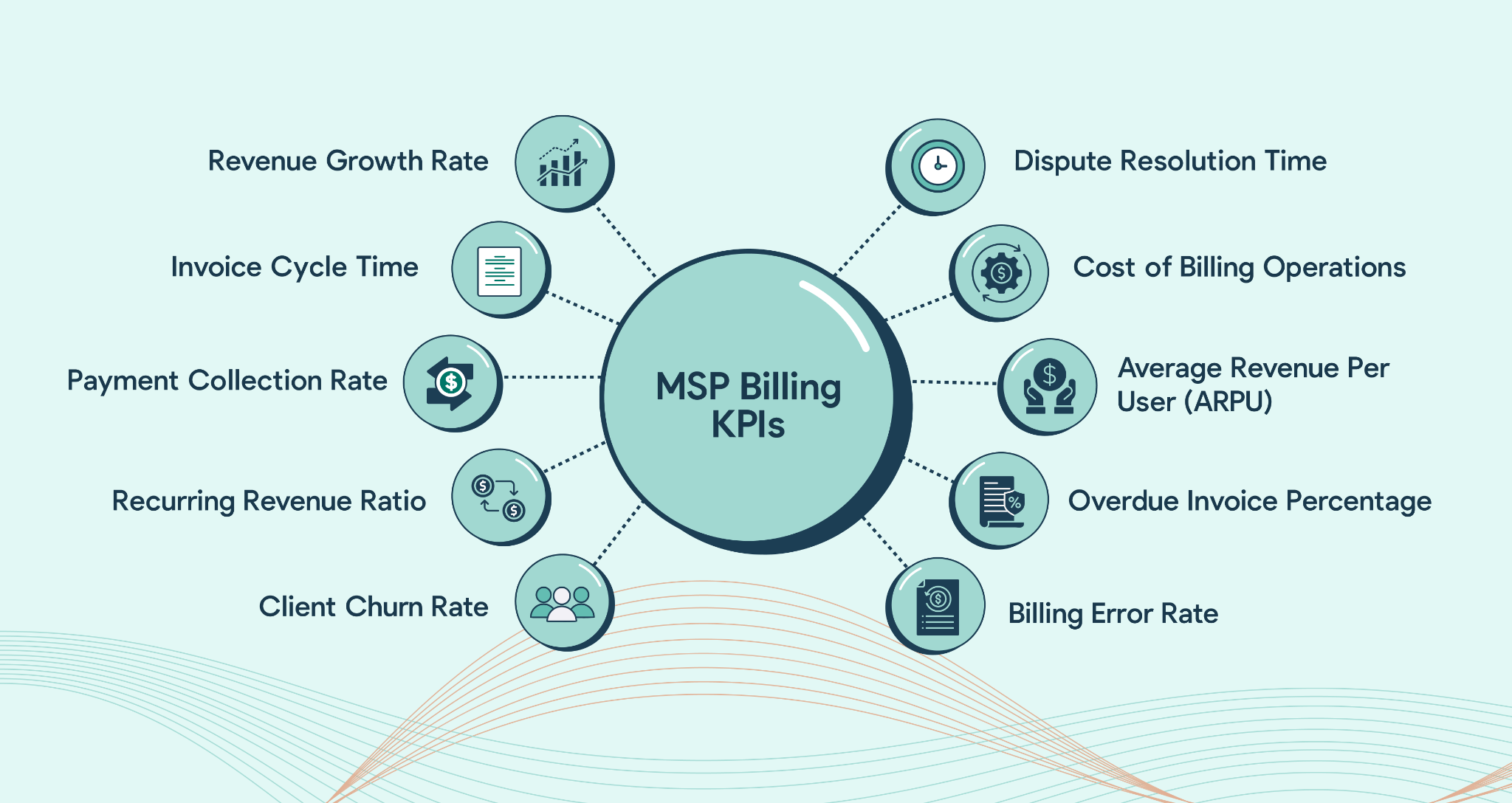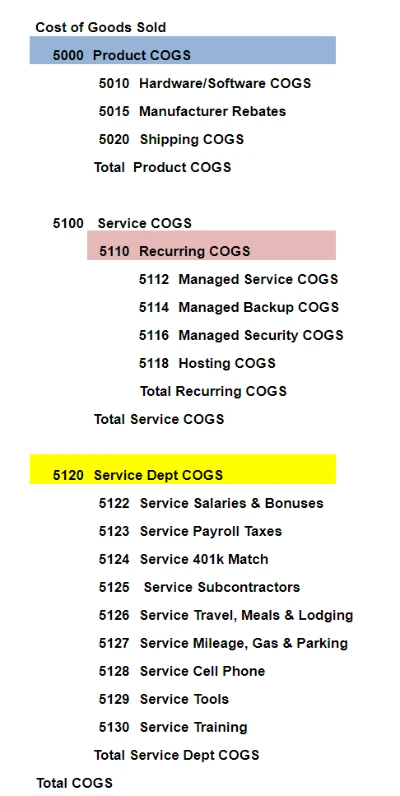MSP Accounting
MSP Accounting vs. Bookkeeping: What’s the Difference?

If you run an MSP, you may have heard the terms bookkeeping and accounting used interchangeably. But the truth is that while they’re connected, they are not the same.
In fact, surveys show that more than 60% of small businesses confuse the two functions, which leads to mistakes that compound over time. Confusing them can quietly stall your growth, hide losses, or cost you thousands in cleanup later.
Simply put: bookkeeping keeps your financial data clean while accounting interprets that data to guide your decision-making. Without one, the other can’t fully function. This is why many financial partners offer both services in tandem.

But there is much more to it than that.
The complexity of MSP operations (from recurring revenue to compliance obligations) means you can’t afford misunderstanding or misapplying bookkeeping or accounting services.
What Bookkeeping Is (and Why It Matters)
Think of bookkeeping as the foundation of your financial house. It’s the day-to-day process of making sure every transaction is captured, categorized, and reconciled.
A skilled bookkeeper ensures that invoices, client payments, and expenses are recorded correctly and on time so that your financial records actually reflect your business’s reality.
Bookkeeping is also the backbone of compliance: if your basic records aren’t in order, tax filing becomes guesswork and the risk of fines increases dramatically.
Core responsibilities of any SMB bookkeeper:
- Recording invoices, payments, and expenses
- Reconciling records
- Categorizing revenue and costs of goods sold (COGS)
- Matching AR and AP accurately
- Managing QuickBooks or Xero
Why Bookkeeping Matters Even More for MSPs
For MSPs, bookkeeping isn’t just about keeping QuickBooks up to date, it’s about protecting your margins, cash flow, and compliance in a business model with unique complexities.
More specifically:
- Recurring revenue accuracy: Misclassifying SaaS resale or vendor pass-through as revenue (instead of COGS) can make margins look artificially inflated.
- Cash flow visibility: With deposits coming in from multiple bank accounts and processors, bookkeeping ensures AR is matched properly.
- Project and contract tracking: MSPs juggle recurring contracts, one-off projects, and prepaid agreements. If these aren’t coded correctly, you’ll never know the real cost of delivery and may end up subsidizing client work without realizing it.
- Compliance readiness: From state sales tax on SaaS to IRS scrutiny on expenses, clean books reduce risk and prevent fines.
- Syncing with your PSA: A generalist bookkeeper might not know what a PSA is. And your PSA and QuickBooks only work as well as the data you feed them.
In terms of compliance, your bookkeeper will specifically have to keep these in mind:

If any of these details are ignored, you end up with reports that look fine on paper but quietly bleed your profitability behind the scenes. For example, Visionary360 reveals how one customer was secretly missing out on $50,000/month of revenue because of something that wasn’t correctly categorized by a bookkeeper:
What Accounting Is (and Why It Matters)
If bookkeeping is the foundation, then accounting is the structure you build on top of it. Accountants take that raw, accurate data produced by your bookkeepers and transform it into insight you can act on.
According to BetterAccounting, document errors and sloppy records account for ~21.3% of productivity loss in businesses. That means if bookkeeping isn’t already being cleanly managed, then accounting has no chance of being effective. And you’re essentially stalled from making any productive choices as the owner, until that becomes resolved.
Core responsibilities of a generalist accountant:
- Designing and maintaining a chart of accounts
- Forecasting cash flow and margins
- Analyzing profitability
- Preparing financial reports for stakeholders, lenders, or buyers
- Advising on growth strategy
Why Accounting Matters Especially for MSPs:
For MSPs, accounting takes clean bookkeeping data and turns it into strategic insight that drives growth and credibility.
- Service-line clarity: A well-designed chart of accounts reveals which services are profitable, which aren’t, and what margins you’re actually earning.
- Cash flow forecasting: Accounting looks beyond today’s balance to show whether you can hire another engineer or technician next quarter or if you need to renegotiate vendor terms.
- Client profitability analysis: By tying revenue to delivery costs, accountants identify which contracts are true growth drivers and which ones are quietly eroding profit.
- Growth and exit readiness: Clean accounting makes you look credible to banks, buyers, and investors, especially when EBITDA, recurring revenue, and retention are under the microscope.
- Risk prevention: Without accurate accounting oversight, MSPs often discover too late that late payments, under-tracked COGS, or unprofitable contracts have distorted their financial picture.
Here are some KPIs that the right accountant will also keep a close eye out for:

In other words, accounting is what transforms your MSP’s numbers into strategy. It’s what ensures you’re not just busy, but sustainably profitable.
Whether you’re applying for financing, preparing for due diligence, or considering an exit, the work accountants do makes you look credible across the board. But none of that is possible if they’re stuck cleaning up messy books.
That’s why bookkeeping and accounting roles go hand-in-hand.
Bookkeeping vs. Accounting: A Side-by-Side
A comparison of a bookkeeper’s and an accountant’s daily responsibilities helps to distinguish the two:
A real life example of this would be: a bookkeeper captures a $1,200 software license sale; the accountant sees that in one line, but also needs to allocate the cost of resale, support labor, and recurring discount amortization to know if that client is truly profitable.
How to Choose the Right Help for Your MSP
Once you understand the difference between bookkeeping and accounting, the next question is usually: Who do I hire, and what should I look for?
When hiring a bookkeeper, focus on their experience with MSPs or other recurring revenue businesses. A good one will know how to keep PSA data (like ConnectWise or Autotask) aligned with QuickBooks, reconcile accounts regularly, and properly categorize SaaS resale, vendor pass-through, and labor costs.
A red flag to watch for is a bookkeeper who only talks about QuickBooks or Xero without mentioning your PSA; that usually means they don’t understand the nuances of MSP financials.
When hiring an accountant, ask whether they can design a chart of accounts tailored to an MSP, and whether they provide forecasting and margin analysis, not just tax prep. You’ll also want to know if they’ve worked with lenders or buyers evaluating MSPs, and how often they recommend reviewing financial reports.
If you notice that an accountant is spending most of their time cleaning up messy books rather than providing insights, that’s a sign your bookkeeping isn’t strong enough yet.
As for costs, bookkeeping typically runs between $300 and $1,000 per month for SMBs, depending on transaction volume. Accounting is commonly billed hourly, with rates ranging from $150 to $400 depending on whether you’re looking for tax filing, CFO-level strategy, or M&A support.
Do You Need Both?
If you’re not ready to take on both bookkeeping and accounting, it might be helpful to consider which service will be most useful at your level, because every MSP hits financial milestones where the stakes change.
Early on, you can get away with doing the books yourself, or asking a family friend or an office manager to “keep QuickBooks up to date.” But as revenue grows, so does the risk of costly mistakes.
- At around $50K–$100K in annual revenue, a part-time bookkeeper becomes essential. This is the stage where the volume of invoices, payments, and expenses outpaces what an owner can track on their own. Getting AR and AP wrong at this point can create cash flow headaches that stall growth before it even starts.
- By $100K–$250K, most MSPs benefit from adding accounting oversight. With recurring contracts layered on top of project work and payroll, it becomes much harder to tell which services are profitable. An accountant can start building reports and forecasts that let you scale with confidence instead of guessing.
- By the time you cross $500k+ in revenue, you absolutely need both functions working in lockstep. Clean books ensure that reports and forecasts are accurate, while accounting helps you model scenarios, prepare for audits, or evaluate acquisition or selling opportunities. Many MSPs at this stage discover (sometimes too late) that sloppy bookkeeping has eroded margins or hidden liabilities.
One key signal of a strong financial partner (whether bookkeeping or accounting): they’ll care deeply about your chart of accounts. Our accounting partner, Stride, emphasizes that even a well-designed chart of accounts (COA) is only useful if PSA data maps cleanly into it and if the COA allows you to pull gross margins, operating income, and profitability by service line.

And remember, if you bring on an accountant to help but you do not have the right numbers at the beginning, you may end up spending 2x to 3x the amount resolving any errors in misclassified COGS or service-line issues.
TL;DR: Different but Better Together
Bookkeeping and accounting aren’t interchangeable: they’re interdependent. One without the other leaves you exposed.
For MSPs, this combination isn’t optional. It’s the difference between an MSP that’s busy being reactive to their finances and an MSP that can scale with confidence.
Here’s what that looks like in practice: Bookkeeping provides accuracy. Every invoice, payment, and expense is tracked and categorized correctly, so you know your numbers reflect reality and it is absolutely where you should start. Accounting provides insight. Accountants turn that accurate data into forecasts, margin analysis, and growth strategies that help you make smarter decisions but are handicapped from making any real impact until your bookkeeping is set.
When both are working together, you’re creating a financial system that supports hiring, long-term profitability, and your ability to sell down the road.
If you’re evaluating your next financial hire, check out our Hiring the Right Accountant for Your MSP Guide. It walks you through exactly what qualities to look for including curated partners who understand your business model.

